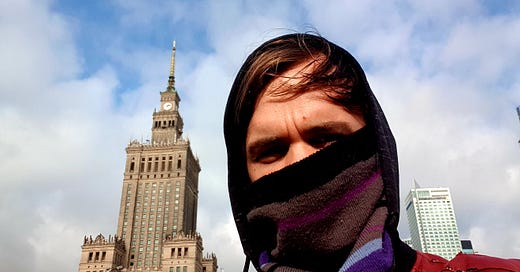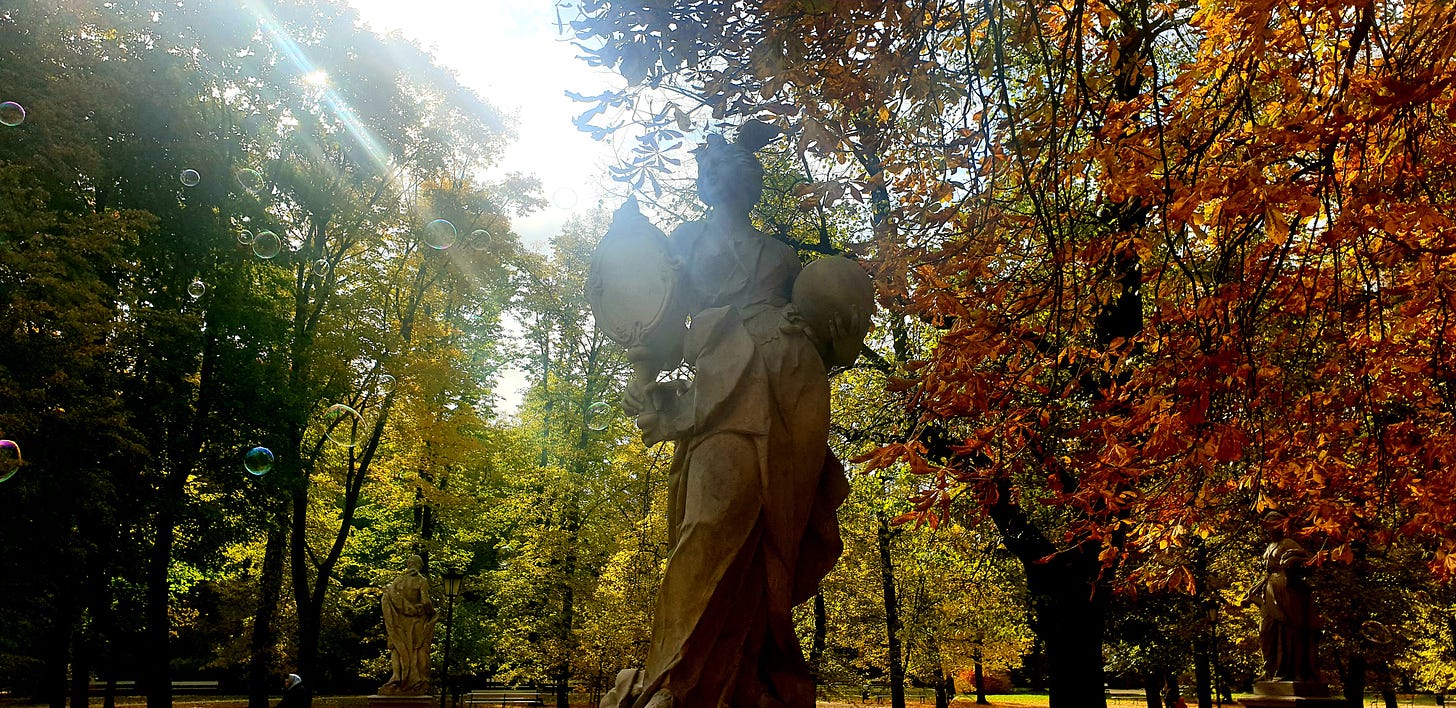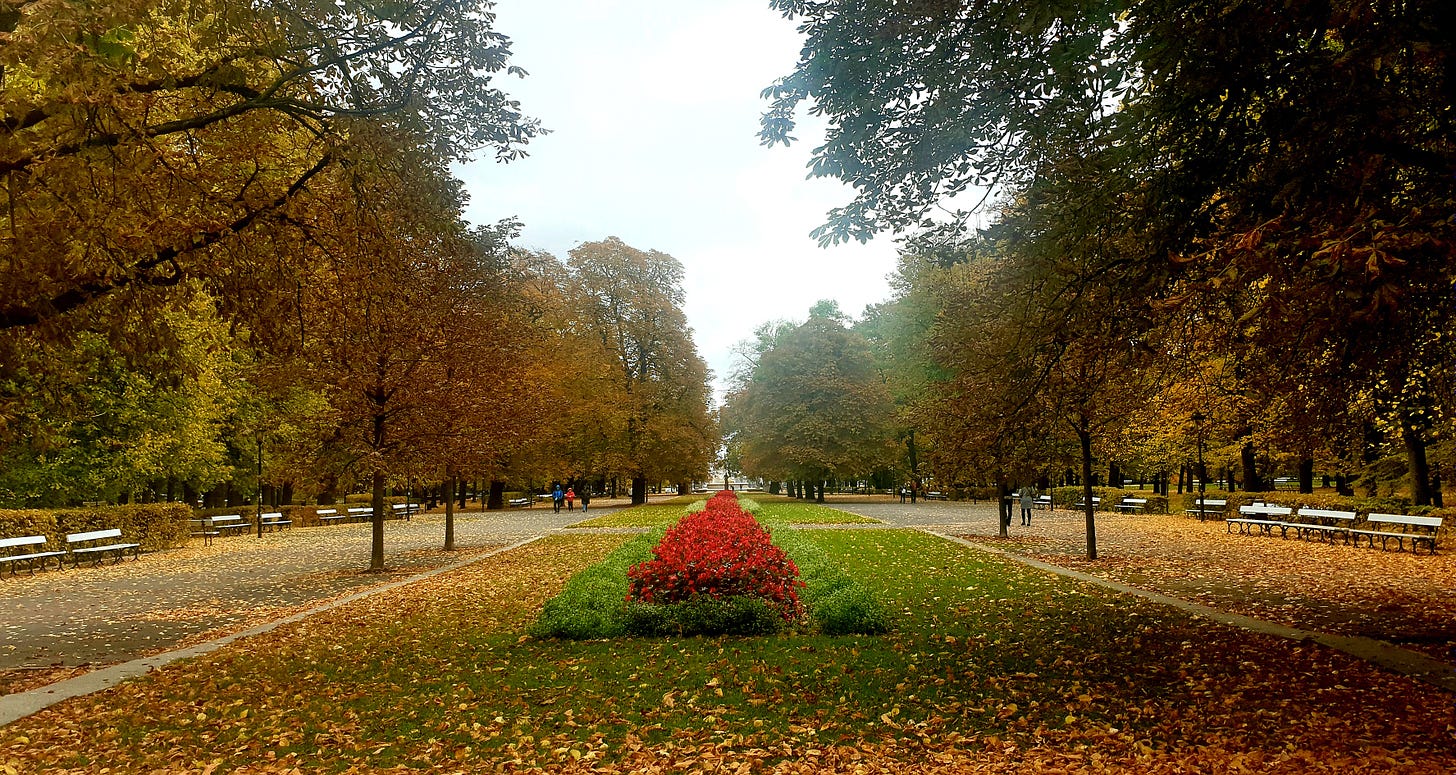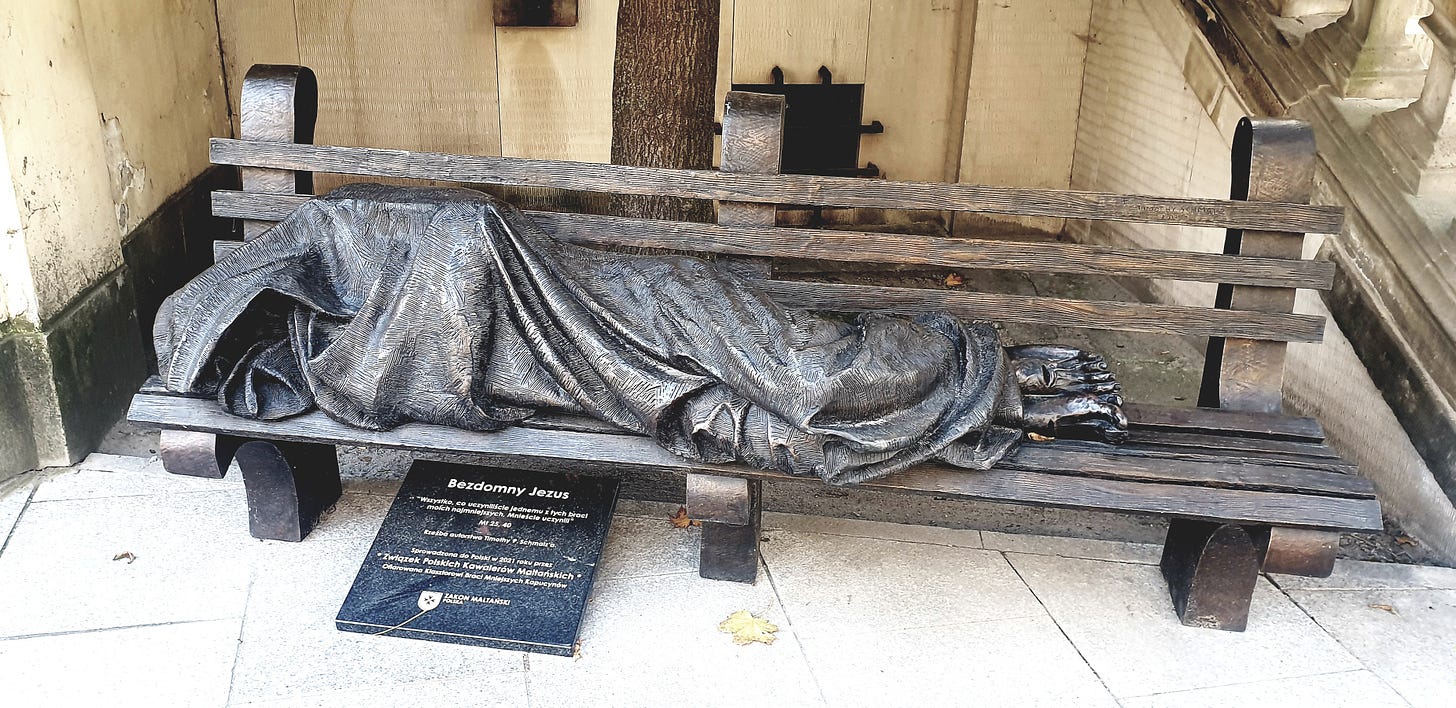"The Enigmatically Untitled" Edition
Hello,
Obligatory shilling. I wrote for The Spectator about the faith of Tyson Fury.
I reviewed Dave Chappelle's latest special for The Spectator World. It was good, but not very good. Obviously, calls for it to be taken down are stark raving mad.
I wrote a short post for UnHerd about the myth of hegemonic bourgeois expectations.
I wrote for my paying subscribers about Chappelle, the New York Times and the manufacturing of dissent. I also wrote a Substack post about my late aunt Ally. (I unlocked it so my family members could share it on Facebook. Do have a read.)
Warszawa. To Warsaw for the day. People generally assume - to paraphrase Emo Philips, Ben do people really assume things about you? - that I live in Warsaw or Kraków. Even Poles do. People in my hometown ask, “Why did you come to Poland?” People in Warsaw often ask, “Why did you go to Sląsk?”
A perception of mild metropolitan snobbery makes Warsaw less popular among Poles I know than it could be - just as London was among people I knew in England. But much of the city is very beautiful: the churches, and the parks, and the monuments, and the little surprises like the “homeless Jesus” pictured below. (There are many of them around the world but they were new to me.) It is all the more beautiful for rising from its ashes.
Of course, most of the newest buildings are great glass office blocks. What monuments are we going to leave for future generations? Now there is a challenge.
Hunting for a restaurant I stumbled across this plaque, paying tribute to the great Polish philosopher Leszek Kołakowski, who had lived in the building. Fittingly, it now hosts a bookshop.
The worst manifestations. In a recent post for my paying subscribers, about the decline of discourse concerning Islamism and jihadism, I wrote:
…none of this is meant to imply that the issues which underpinned the arguments of the noughties have disappeared…The worst manifestations of the faith, and their ideological roots, will impose themselves upon the headlines whether anybody wants them there or not.
On Wednesday, a man killed five people in Norway with a bow and arrow. Then, on Friday, a man stabbed David Amess MP to death in England. A popular arguments back in the day was that jihadism was a result of imperialism or impoverishment. The Norwegian killer was a native convert to Islam and the murderer of Amess was the son of a well-to-do former Somali official. That is not to say that factors such as mental instability and social alienation were not involved - just as I would never claim political grievances or poverty but can never be involved - but that you cannot write ideology out of the picture. RIP to the victims of these atrocities.
Bitterness and Kant. I didn’t think anyone could write interestingly or intelligently about the “Bad Friend Art” essay but Oliver Traldi, writing for Arc Digital, has done it (£):
There’s little that people in politics hate more than the idea that the most morally important actions might be those which, though they might require some sacrifice, just about anyone can take, like donating money, or donating an organ, or treating close friends and family the right way.
Honest accounting. For Tablet, Oliver also has a lot of fun with Tom Nichols’s latest bout of flabby liberal hectoring:
Of his lectures on the moral failings of stupid and slovenly nonexpert Americans, he writes that he is “more reticent to deliver such sermons these days” (he means “reluctant,” but reticence would have been nice).
Someone give this man a book that he might actually like. He has suffered enough.
The media mix. Mary Harrington reflects on the ubiquity of branding:
…writing a book is just part of the “media mix”. Where fame used to be a means of getting your message out, now messages are a means of getting your fame out.
I appreciate the irony of posting this on the Substack. In all seriousness, though, I do my best to keep things eclectic and interesting - and to avoid fitting snugly into a mould. You can be the judge of whether I succeed at all.
Enviromasochism. Scott Alexander advises people not to avoid having children on environmentalist grounds:
A less destructive way of assuaging your guilt over having children would be to donate some money to climate charities or carbon offsets in your kid's name. Nobody who really wants a kid should avoid having one because of climate-related concerns.
I'm not sure how many people actually avoid having kids of environmentalist grounds and how many dress their lack of motivation in the garb of principle but presumably there are some.
Being unwell. Freddie deBoer’s review of Ross Douthat's The Deep Places is admiring but sceptical. I cannot attest to its fairness because I have not read the book - and Lyman Stone disputes some of its scientific claims here - but it is a powerful piece of writing that made me want to do so:
A friend of mine - someone wiser than I am - said that The Deep Places is not really about chronic Lyme disease at all. The book, he said, is really about the experience of being unwell, with all the devastation and heartbreak that can entail, and trying to get well in the grips of a medical establishment that can so often be uncaring and dismissive.
Dreams. The great Dan Hitchens asks if we really can achieve anything:
I wouldn’t quite claim that Anythingism is how the winner class distracts the rest of us from asking those questions. It is, though, a highly convenient myth.
Dan is right of course. With that said, the important thing is not to bang into young children's head that they cannot achieve their dreams but to give them deeper, richer dreams to begin. (Yes, I am quite aware of how easy that is to say…)
Drilling down. A Policy Exchange report on London knife crime claims:
…[our] analysis found that of the 41 gang-related homicides in 2018, at least 15 (36 per cent) were directly linked to drill music, where either the victim or perpetrator was an aspiring drill rapper, or drill videos were used as evidence in the trial.
“Directly linked” is doing a bit of heavy lifting here. A lot of “aspiring drill rappers” would be in gangs even if they were not into rapping. Gang membership preceded the music. I suspect that drill has some effect on attracting members or inflaming feuds. In my Critic article I mentioned a case where a young man from Chicago dropped a diss track and was gunned down three days later. But causation is difficult to untangle and violence will not disappear if music does.
Drill actually provides an interesting challenge to free speech absolutists. I suspect most of them would agree with banning songs that threaten death to specific individuals, but what about songs that celebrate deaths? (For example, this Young Dizz verse on “Smokey Things”: “They took two of my tunes down/Because [redacted]’s mum was shedding tears/Somebody tell her I don’t a fuck that her son ain't here.” I wonder how Walter Block would defend it.)
Tullen. After reading my piece about my aunt, Kathrine Jebsen Moore wrote a lovely piece about hers.
Have a great week,
Ben










